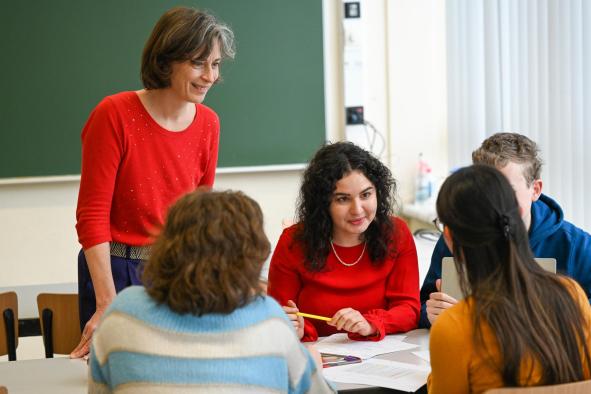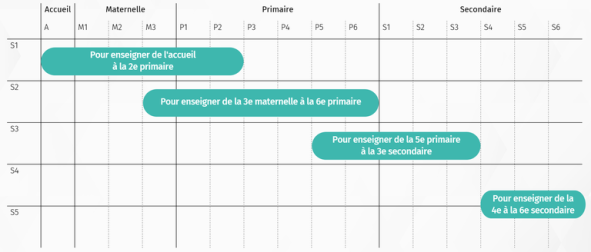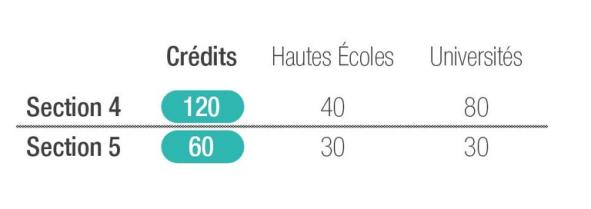Learning, guiding, collaborating, helping future generations become agents of change... Being a teacher is exciting! In order to adapt to changes in the profession, training has been totally rethought.
It is now organized around:
- the ages and needs of students
- the skills teachers need to acquire today as the profession evolves
- the Pact for Teaching Excellence.
Thanks to the close collaboration between Universities and Hautes Écoles, initial teacher training enables the acquisition of university-level skills while reinforcing professional practice.
What is the FIE?

Don't say "primary school student" or "regendat" any more...
Teacher training is now split into 5 sections covering the following students:
- Section 1: reception class to primary 2
- Section 2: kindergarten to primary 6
- Section 3: primary 5 to secondary 3
- Section 4 or 5: secondary 4 to 6

For sections 1 to 3 (reception to Secondary 3) :
Since 2023, for sections 1 to 3, teacher training has been extended to 4 years. This will enable all future graduates to follow a course in which practice is the common thread.
Concretely, here's what's changing:
- 4-year course (Bachelier + Master 60 credits)
- Codiplomation of Hautes Écoles with one or more Universities
- Diagnostic test of mastery of the French language (optional)
- Possibility of continuing with a specialist Master's degree (optional)

Training organization for sections 4 and 5
From 2025, for sections 4 and 5, teacher training becomes a "master in teaching" in 120 credits after a disciplinary bachelor's degree or in 60 credits after a disciplinary master's degree.
Concretely, here's what's changing:
- Reinforced training in teaching
- Codiplomation with one or more Hautes Écoles
- More practice throughout the training
- Diagnostic test of mastery of the French language (compulsory)
- Possibility of to continue with a specialization Master's degree (optional)
The master in teaching section 4 is a master 120 credits of which 80 to 100 credits are devoted to teacher training. It replaces the current didactic master's degree, which includes 30 credits of teacher training.
Disciplinary bachelor's degree (180 credits) + Master's degree in teaching (120 credits)
The master in teaching section 5 is a 60-credit master's degree that replaces the current 30-credit agrégation
Disciplinary bachelor's degree + Disciplinary master's degree (240 or 300 credits) + Master's degree in teaching (60 credits)
The programs will be organized as codiplomas between Universities and Hautes Écoles with the following breakdown:

Teaching together



